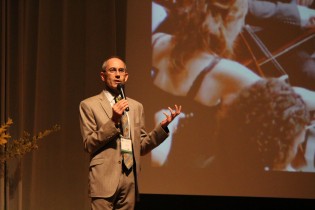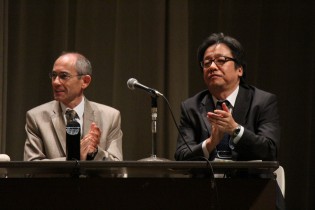During the last 17th World Congress of Psychophysiology (IOP2014), organized by the International Organization of Psychophysiology (IOP) in Hiroshima (Japan), September 23-27, 2014, Carles Escera gave the keynote lecture entitled:
“Tagging the acoustic world: regularity encoding from brainstem to cerebral cortex“.

In his lecture, Prof. Escera reviewed the work conducted at Brainlab during the last five years showing that cerebral correlates of auditory deviance detection can be found at much earlier latencies and in cerebral structures anatomically lower that those related to the mismatch negativity (MMN), suggesting that deviance detection based on regularity encoding is a key principle in the functional organization of the auditory system (see Escera & Malmierca, 2014 here, or Escera et al., 2014 here).
During his trip to Japan, Prof. Escera also visited the Department of Neuropsychiatry of the Fukushima Medical University, under the invitation of its chair, Prof. Hirooki Yabe, to discuss ongoing scientific collaboration and to give two different lectures:
“The contribution of cognitive neuroscience to neurology and psychiatry“.
“Regularity encoding and deviance detection as a basic auditory function: contributions from human psychophysiology“.



